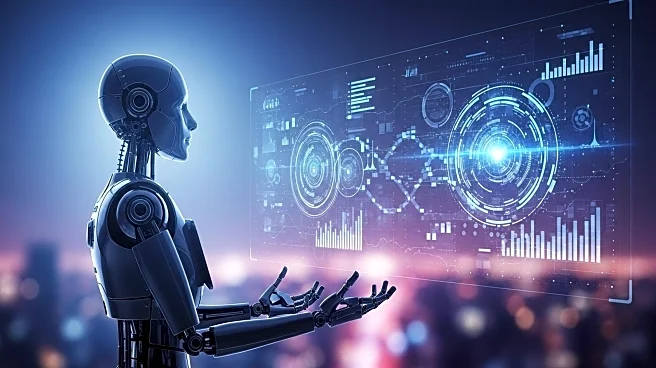What's Happening?
The increasing presence of AI-generated content across the internet is raising concerns about the future of human-made content, particularly in the film, music, and publishing industries. AI-generated music and actresses are becoming more prevalent, and AI answers are appearing at the top of Google Search results. Despite the popularity of AI, many consumers prefer content created by humans. Penske Media has sued Google over its use of AI Overviews, alleging that it abuses monopoly power and circumvents the need for readers to click on articles directly. Publishers are responding by blocking AI crawlers and signing content licensing deals with AI companies.
Why It's Important?
The rise of AI-generated content poses a significant challenge to traditional media industries, potentially impacting revenue and employment. As AI models continue to be trained on vast amounts of online information, the distinction between human and AI-generated content becomes blurred, affecting consumer trust and decision-making. The legal actions taken by publishers highlight the ongoing struggle to protect intellectual property and maintain control over content distribution in the digital age.
What's Next?
Publishers may continue to pursue legal action against AI companies to protect their content and negotiate licensing deals. As AI technology evolves, there could be increased pressure on tech companies to address ethical concerns and ensure transparency in content generation. The industry may also see a push for regulations to safeguard human-made content and prevent AI from monopolizing online information.











